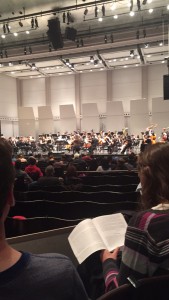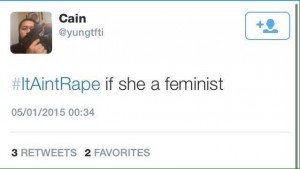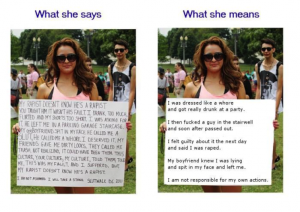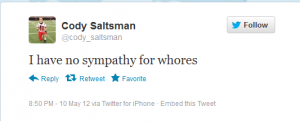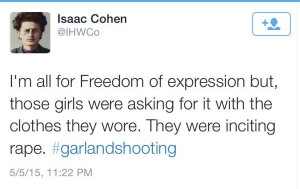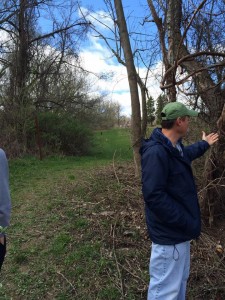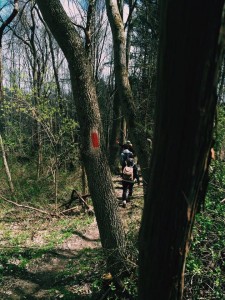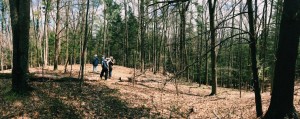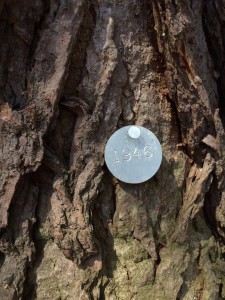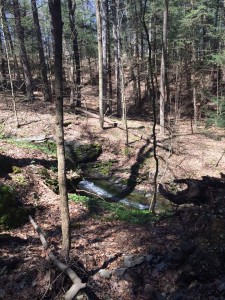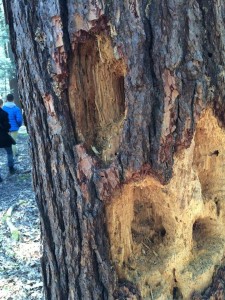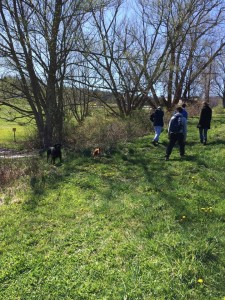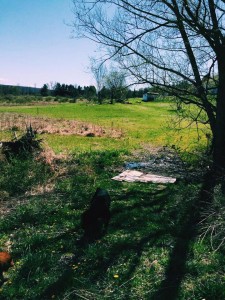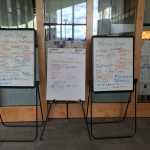I think some of the best Rose Scholar events have been plays, and I’m surprised that more people don’t attend them. This performance was no different. The acting was good, the theme was extremely relevant, the plot was moving, and whole thing was very thought-provoking. Not only did I enjoy the performance aspect, I was happily surprised to learn certain historical things that I had just never been exposed to before in school. Now to move on from all of this vagueness, I’m going to spoil the play, and if you plan on watching it (which I definitely recommend), I wouldn’t want to spoil that moment of realization that changes the tone of the storyline.
The play Paloma is a tragic love story between an Islamic Moroccan American, Ibrahim, and a Catholic Puerto Rican American, Paloma. It starts out with Ibrahim talking to his Jewish friend, Jacob, who is a lawyer about his relationship with Paloma. From the very first scene, it’s clear that the playwright is trying to set up the tension between this couple in terms of religion and sex. I think what made this compelling is not only the stereotypical view of Muslim Americans, but of men taking advantage of women. As it isn’t clear why Ibrahim is on trial, when Jacob affirms that he did not force her to go with him and other such phrasings are discomforting.
Unlike the first performance I saw at the Kitchen Theatre, this play was composed of lots of flashback scenes, in which lighting changes and creative use of the staging allowed for very versatile storytelling. During admission, it was brought up that the minimal set made it harder to get immersed in the various storylines, but I thought the acting was compelling enough that it really didn’t take anything away from the story for me. I was actually really impressed with how well the whole story was able to flow with so many switches back and forth and very minimal costume changes.
While I enjoyed the overall concept of the romance, I thought the setup was very rushed (which I also understand is necessary for a play) and it was very cliché. Ibrahim and Paloma are reading Ibn Hazm’s The Ring of the Dove, a treatise on love for a class at NYU and with all of the talk about love, they fall for each other. The saving grace for me during this development was my ignorance. I don’t think I had ever heard of Ibn Hazm or knew that Spain used to be a country with peaceful coexistence of religions. I found myself thinking back to all the history I had been taught in school, and almost none of it talked about coexisting religions – most of it had been about how religious differences led to various conflicts.
As the play progresses, we see the characters deviate from the initially set up stereotypes. Ibrahim is actually a pretty devout Muslim and while Paloma thinks that he’s being coy by talking about bringing her home to “pray,” she learns that he while he’s definitely into her, he doesn’t want to have sex quite yet. While she grew up Catholic and still attended church services during holidays like Christmas, she had had her fair share of sex and seemed to not be heavily invested in religion. This conflict returns periodically throughout the play, and left me confused nearing the end.
As their relationship progresses, Ibrahim surprises her with a trip to Spain to visit historical sites that were at the core of what Ibn Hazm wrote about. While this should have been a clear sign of affection, Paloma still feels like Ibrahim might be holding out on sex because of reasons other than his faith. When they talk of possible marriage in the future, religion starts a fight that I felt conflicted about. Ibrahim mentions that if she were a truly devout Catholic or converted to Islam, his community would be more accepting of their relationship. She, not being particularly religious, thinks that either option is asking too much of her, and they fight. While I have no personal context for this, I don’t think that the request was outrageous, and would have thought that trying to be more religious when you have a positive connection to your church already wouldn’t be too difficult. Nevertheless, religion was definitely a source of conflict throughout the play.
Another major source of conflict I haven’t talked about yet is the family conflict. Ibrahim, afraid of what his parents and community will think of his relationship, keeps Paloma a secret until he is in Spain with her. Unfortunately, someone his family wanted him to end up with snitched on them and Ibrahim’s father was already mad, and refused to talk to him afterwards.
It was somewhat frustrating to sit through the first parts of the pay without knowing what Ibrahim’s trial was about, the realization that he was being blamed for being a part of terrorist attack on a train station in Spain that killed Paloma was heartbreaking. I think that I let out a barely audible gasp. The relevance of an accusation like that is so close to home that it felt too real. With this current election cycle, debates over how to treat refugees and immigrants, terrorist attacks around the world, the play, to me, became a lot more tangible. While the romance seemed like any other piece of fiction, this turning point was heartbreaking.
An honest mistake was all it took. While he was still injured, as seen through a hospital fever dream, Ibrahim had gotten up to find an available bathroom when the explosion happened. We saw the scene. They were in love, kissing each other, reading Ibn Hazm, making plans for what they were finally going to do once they got off the train. Ibrahim leaves, and the explosion happens. The verdict of the trial comes back guilty, and Ibrahim is expected to pay millions in losses to Paloma’s family. He also has a heart wrenching scene with Paloma’s mother (played by the same actor as Paloma) and finds little closure in the matter.
When he and Jacob travel back to Spain, Ibrahim is overwhelmed by his grief and wants to take his life so he and Paloma can be together in spirit, but she appears to him, talking him out it. This ending left the play open to a lot of questions about how many things. How is his relationship with his family and religious community going to play out? Will he ever be able to love someone else again? Will he end up winning the appeal against the terrorist charges? Would this happen if they weren’t an interfaith couple? How big of a role did undeserved religious stereotypes play in this whole ordeal and how can we as a society prevent rash accusations based on internal, baseless prejudices? This play definitely picks up on many contemporary issues that have been brought up a lot in the news lately, and I hope that society can move past the trivial profiling of people who are just trying to live their lives and live in peaceful coexistence.


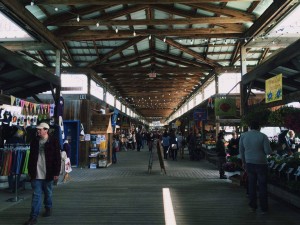

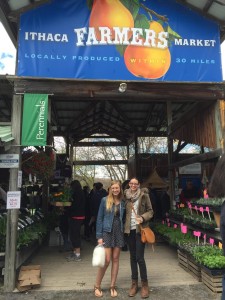

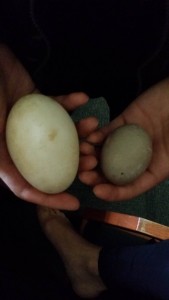


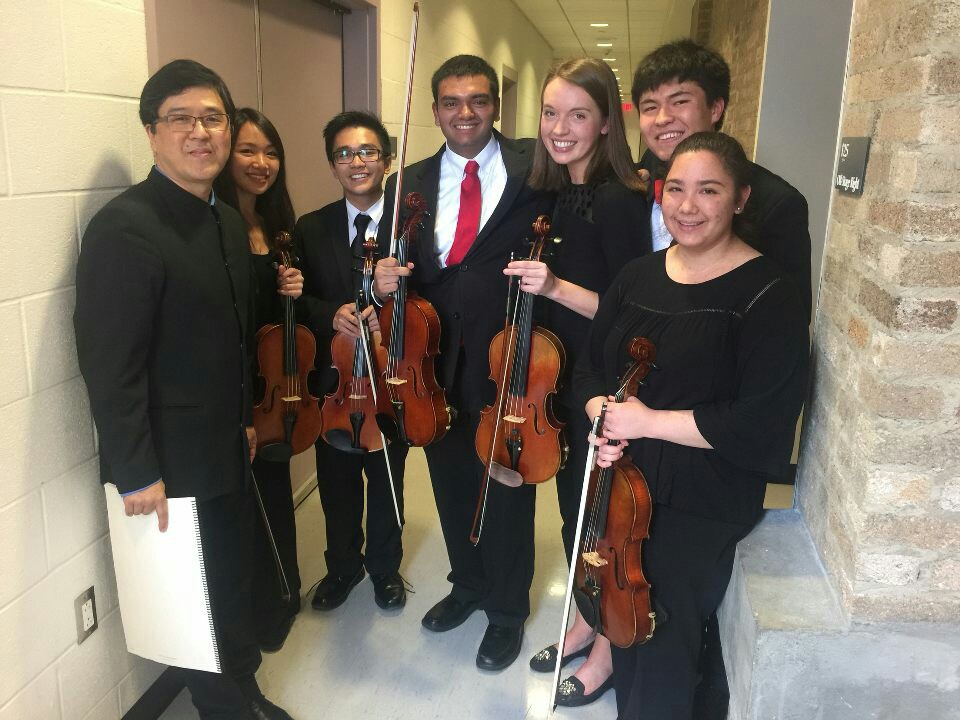 While this particular performance was very exhausting compared to others, it was also a great one. I am already looking forward to next semester’s performance!
While this particular performance was very exhausting compared to others, it was also a great one. I am already looking forward to next semester’s performance!